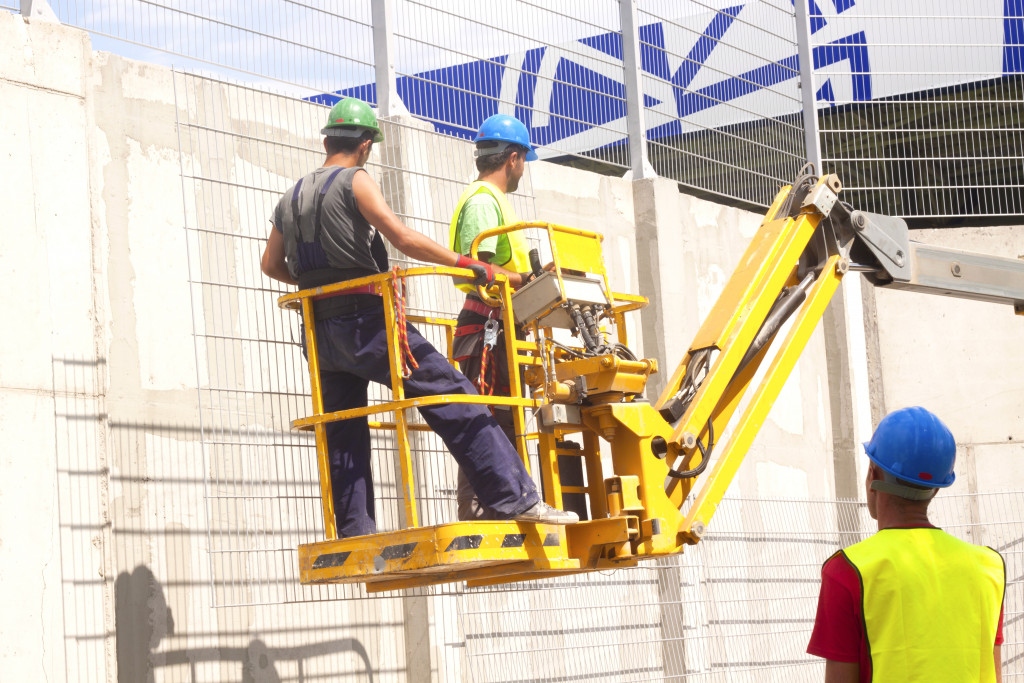- Safety training on construction sites mitigates accidents and ensures adherence to safety standards.
- Training improves worker efficiency, productivity, and job satisfaction by fostering competence and confidence.
- Quality output, achieved through continued training, mitigates project delays and costly corrections.
- Keeping pace with the latest construction technologies and methods keeps crews competitive and innovative.
In the construction industry, the success of a project depends heavily on the competency and skills of the construction crew. A lack of knowledge and skills can result in costly project delays, safety hazards, and poor-quality work.
This is why training and development are crucial for construction crews. This blog will explore why training and development are necessary for your construction crew and provide essential tips for construction businesses to implement effective training programs.
Improve safety on the job site.
Construction sites can be dangerous, with numerous hazards, including heavy machinery, power tools, and electrical equipment. Safety training can help prevent accidents and injuries by ensuring that your crew follows best practices and safety standards. Even experienced workers can benefit from regular safety training sessions to refresh their knowledge and stay up-to-date with the latest safety standards.
Increase productivity and efficiency.
Well-trained workers can complete tasks much more efficiently than poorly trained or untrained workers. Training helps workers learn best practices, methods, and techniques to complete tasks, which can improve productivity and efficiency. Additionally, workers who feel competent and confident in their jobs are more motivated and satisfied, which further boosts productivity.
Ensure quality output.

Quality is critical in the construction industry, and training helps ensure that your output meets or exceeds industry standards. A well-trained crew can catch and fix mistakes early, reducing project delays and costly rework. They can also identify potential issues before they become problems, improving the quality of your finished project.
Keep up with the latest technology and techniques.
The construction industry is constantly evolving, with new technology and techniques being developed all the time. It’s essential to keep your crew up-to-date with the latest developments to remain competitive and innovate. Here are four things you can do to ensure your team is up-to-date:
Utilize online training and webinars.
Online training and webinars are a great way to provide your crew with up-to-date information without having to take them away from the job site. You can also use these tools to supplement in-person training sessions, providing additional resources for your crew.
Partner with industry experts.

Partnering with knowledgeable and experienced professionals is a great way to provide the latest industry knowledge and expertise to your crew. These experts can show your staff how to safely and effectively operate new machinery, identify potential problems, or provide other valuable insight.
Promote an open-door policy.
Promoting an open-door policy within your crew is a great way to encourage learning and collaboration. Encourage your staff to ask questions, share ideas, and provide feedback in order to foster a culture of knowledge-sharing and growth.
Acquire necessary certifications and qualifications.
Many construction projects require certification and qualifications in order to be completed safely and effectively. Failing to obtain the necessary certifications or qualifications can result in delays, fines, or other costly repercussions. Your crew should be up-to-date on the required certifications and qualifications for each project.
Just make sure to do your research, as these qualifications and certifications may vary depending on several factors. For example, if you’re based in the UK, your workers will be required to have Construction Skills Certification Scheme (CSCS) cards in order to work on certain construction sites.
They can get these cards by passing the Construction Industry Training Board (CITB) Health, Safety and Environment Test. This test covers topics such as safe working practices, health and safety regulations, and environmental issues. Passing this test proves to employers that your workers have the necessary skills and knowledge to work safely and effectively, which can help you win more projects.
By keeping up with the latest technologies and techniques, your crew will be able to stay ahead of the competition and offer more efficient, quality services.
Investing in training and development for your construction crew is not just beneficial. It’s essential for the success and growth of your construction business. Not only does it help ensure safety on the job site, but it also increases productivity, efficiency, and the overall quality of your work.
Additionally, it keeps your crew current with the latest industry technology and techniques, giving your business a competitive edge. Remember, a well-trained crew is a valuable asset and can be the difference between a successful project and one fraught with delays and inefficiencies. So, prioritize continuous learning and foster a culture that values professional development. It’s an investment that will undoubtedly pay off in the long run.






